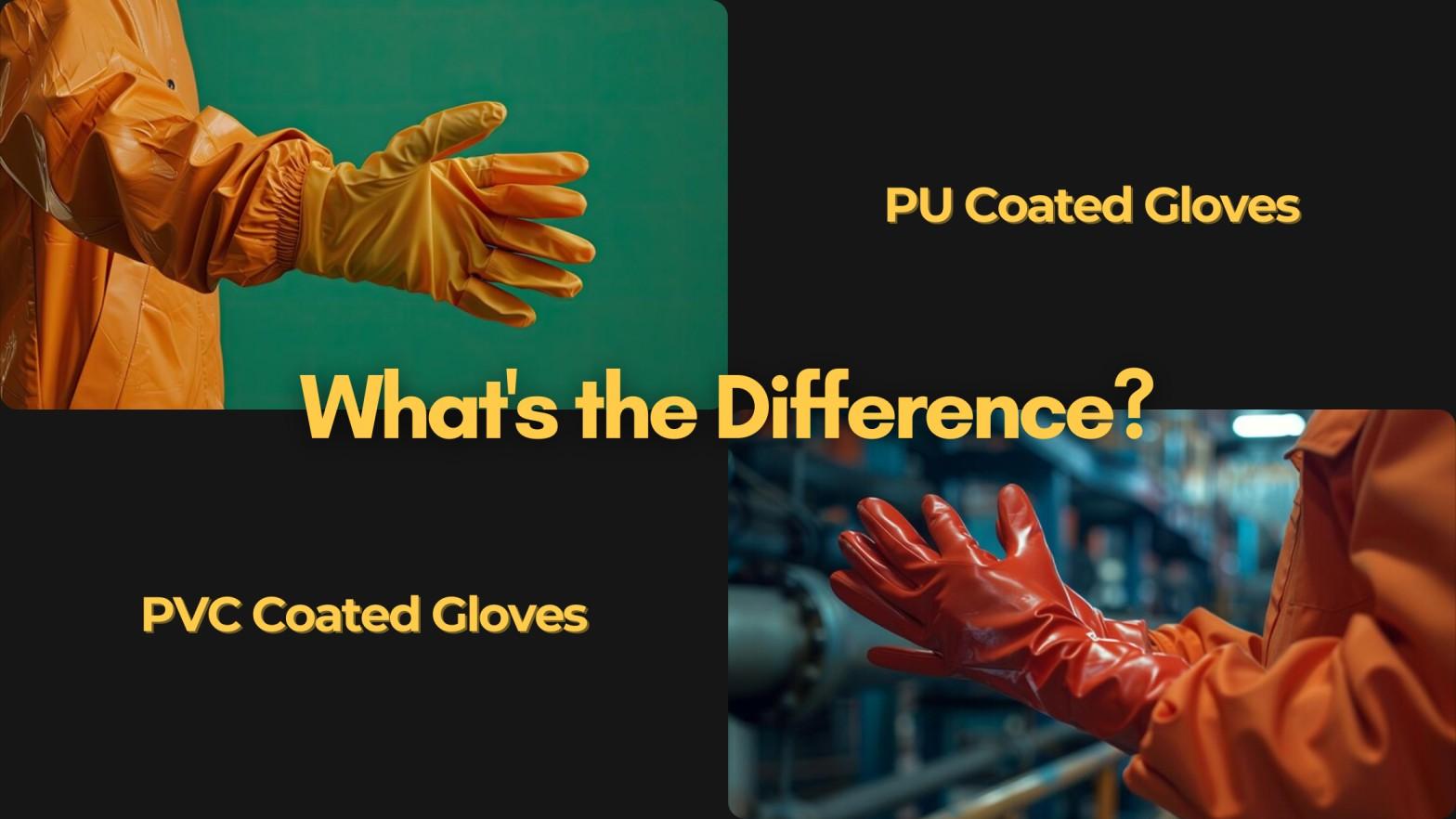Finding the right gloves to protect hands can be difficult because there are many options. Two common types of glove coatings are PU (Polyurethane) and PVC (Polyvinyl Chloride). Each type has different features to make it suitable for specific tasks. Knowing the differences between PU vs PVC coatings can help you pick the gloves. In this article, we will look at the differences between PU and PVC-coated gloves and the industries they are best for.
What are PU-Coated Gloves?
PU-coated gloves are made from Polyurethane a lightweight and flexible material perfect for handling work, they allow easy movement. Workers handling small parts or using delicate tools prefer PU-coated gloves because they are comfortable and flexible.
A big advantage of PU-coated gloves is that they are breathable. Thicker coatings can make hands hot but PU lets air flow keeping hands cool and comfortable during long use. Industries like electronics assembly, automotive repair, and product checking use PU-coated gloves because they provide a good grip and control without being bulky.
PU-coated gloves are tough against scratches and damage making them a good option for many light to medium jobs. They might not last longer than other materials but they are still reliable.
What are PVC Coated Gloves?
PVC, or Polyvinyl Chloride, is stronger and more durable than PU making PVC-coated gloves thicker and stiffer for better protection against oils, chemicals, and water. Because of this, PVC-coated gloves are commonly used in industries like construction, chemical handling, and oil/gas.
PVC-coated gloves are tough and can handle rough working conditions where they might come into contact with chemicals and liquids. When comparing PVC and PU coatings, PVC provides better protection against harmful substances. PVC-coated gloves can keep your hands dry and are great for working outside.
One issue with these gloves is that they are usually less flexible than PU gloves. This can make it harder to move and complete work.
Differences Between PU vs. PVC Coating
- Flexibility and Control: PU-coated gloves are more flexible and allow better movement ideal for detailed work. PVC-coated gloves are thicker and not as easy to move in. They are better for hard tasks that need more protection than careful control.
- Durability and Chemical Resistance: PVC-coated gloves are durable and resist chemicals, oils, and liquids. This makes them great for industries where you handle dangerous materials. PU-coated gloves resist wear and tear better but don’t offer as much chemical protection as PVC gloves.
- Breathability and Comfort: PU-coated gloves are much more comfortable than PVC-coated gloves for long wear. They keep hands cooler during use, whereas PVC-coated gloves can feel heavier and less airy.
- Grip and Control: PU vs PVC coatings provide a good grip, but PU-coated gloves are especially appreciated for giving better control. Workers handling small, delicate objects will benefit from the better feel provided by PU vs. PVC gloves.
- Water Resistance: PVC-coated gloves are water-resistant. PU-coated gloves provide a good grip but aren’t designed for wet conditions or heavy moisture. PVC gloves are better for water work while PU gloves are better for dry tasks.
Choosing Between PU vs PVC Coated Gloves
When choosing PU and PVC-coated gloves, you should think about the gloves’ needs. Each type of coating has its advantages, and picking the right one depends on the environment and the tasks.
When to Choose PU-Coated Gloves?
If your work involves handling small parts, detailed tasks, or working in dry places, PU-coated gloves are probably the best choice. They provide great movement, breathability, and comfort They’re good for electronics assembly, automotive repair, and quality control. These hand gloves for protection also work well for long hours without losing comfort.
When to Choose PVC Coated Gloves?
If you work with chemicals, oils, or in wet environments, PVC-coated gloves are the better option. They are strong and resist dangerous materials, making them great for construction, oil and gas, and chemical work. Although they are less flexible than PU-coated gloves, their extra protection in tough conditions is valuable for demanding tasks.
If you are looking for the gloves to protect hand, you should consider the risks and needs of your workplace. Choosing gloves with the right coating can improve safety, comfort, and productivity.
PVC vs PU Leather: What’s the Difference?
When talking about PU and PVC coatings on gloves, it’s also good to mention the differences between PVC vs PU leather. Both materials are substitutes for real leather especially in industries needing vegan or synthetic options. PVC leather is durable and water-resistant. PU leather is softer and more flexible for gentle touch tasks.
Final Thoughts on PU vs. PVC-Coated Gloves
PU and PVC coatings offer different advantages for specific tasks; PU-coated gloves are light, easy to move in and allow good airflow. PVC-coated gloves are durable and resist chemicals.
To find the best hand protection gloves, think about the specific risks and needs. If you need gloves for detailed work or strong protection against chemicals and oils, knowing the differences between PU vs. PVC coatings will help you make a good choice.
